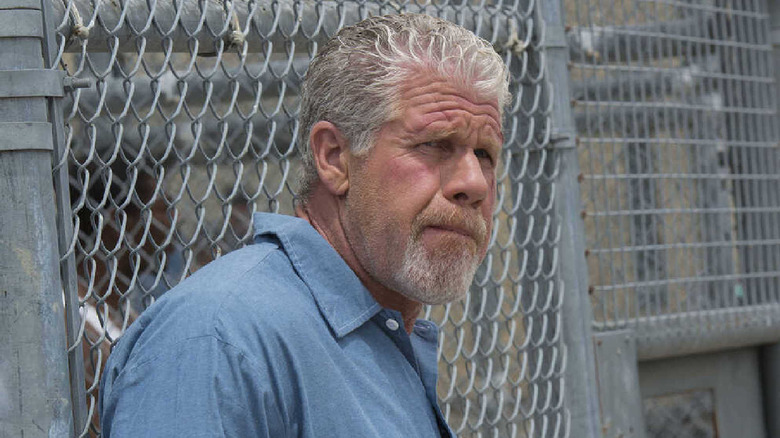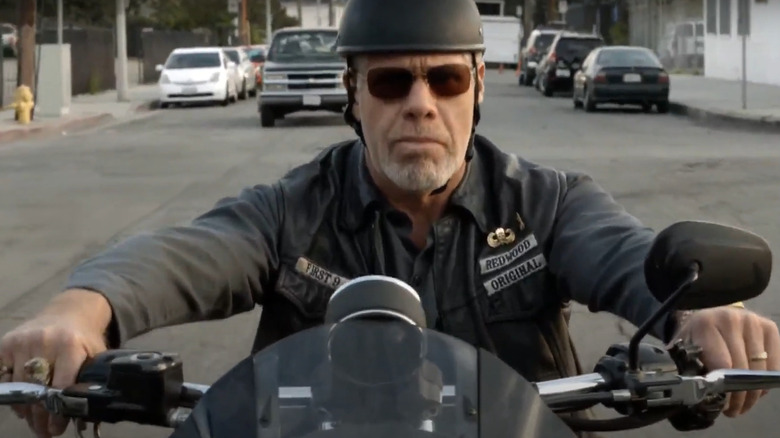Why Sons Of Anarchy Season 6 Was Hard For Ron Perlman
The Emmy-nominated FX series "Sons Of Anarchy" became a critical success over the course of its seven-season run, as it followed a biker gang in Charming, California, played by a cast that included Charlie Hunnam, Katey Sagal, Maggie Siff, and Ron Perlman. Perlman played Clay Morrow, a Vietnam veteran who's been with the Sons Of Anarchy Motorcycle Club since 1968. He becomes the leader of the gang, but it's eventually revealed that he had a hand in the death of John Teller, the gang's previous leader, leading to his removal. He's ultimately killed by Jax Teller (Hunnam), John's son, in the sixth season.
In an interview with NPR, Perlman was asked about mentioning in his memoir that he felt ostracized on the set during Season 6. Perlman responded that he was separated from the rest of the cast for nearly the entirety of the season. With Morrow in jail and cut off from the gang after betraying them, Perlman said that Morrow's storylines were completely independent from the rest of the show. This meant that he didn't interact with any of the other cast members until his final episode. The isolation took a toll throughout the season on not just his character, but him.
"The closeness that had characterized the first few years of the show, when we were all getting to know each other and all getting so swept up in what it was that we were a part of, had turned into something else," he explained.
Perlman was uncomfortable, but committed to Morrow's arc
Ron Perlman told NPR that he been made aware of Morrow's impending death by "Sons of Anarchy" showrunner Kurt Sutter before the season began. This meant that Perlman spent the season processing his character's demise, as well as his exit from the show, which gave him a general sense of unease.
This discomfort was enhanced by some of the things Morrow did during the sixth season, an aspect of Morrow's arc that Perlman wasn't enthusiastic about delving into. "Just how completely Machiavellian he had become — how completely overwhelmed his own humanity became by these events that he created for himself," Perlman elaborated.
Asked specifically about Morrow's death, Perlman provided more insight into his acting process. He said that when he's in character, he's wholly in character, and doesn't bring any of himself into it. The performer continued that while he didn't like the scene and its degree of grimness, he nonetheless committed to ensuring that viewers felt the full impact of the moment, and the way Morrow was killed. "It's a brutal moment," he recalled. "Is it fun? No. But is it inevitable? I mean, the minute you start something, it's going to end."

